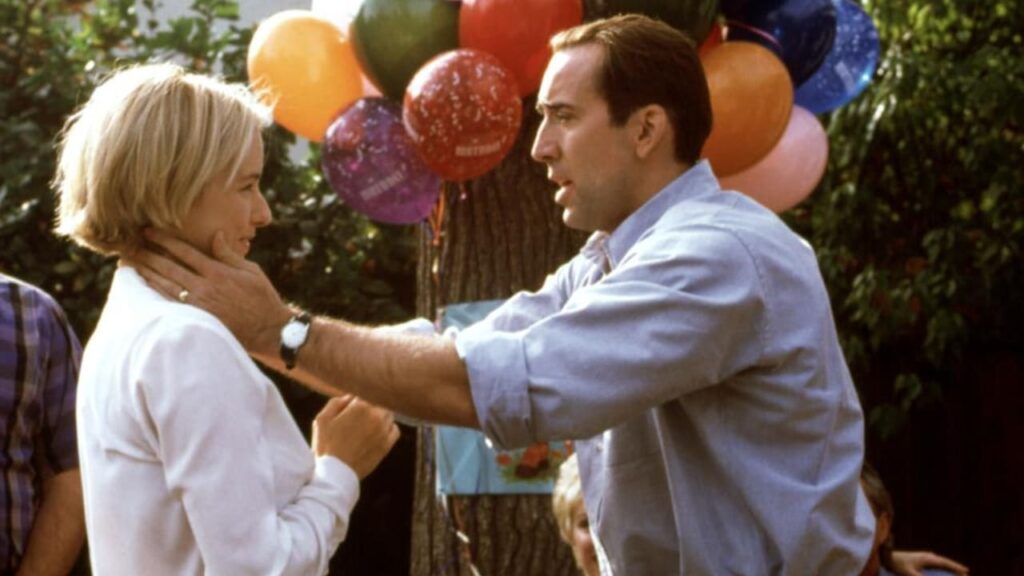
This holiday season I have been revisiting a lot of my seasonal favorites from 3615 code Père Noël (1989) to Since You Went Away (1944). But I have also been watching a number of films that are new to me as well as checking out films that I haven’t seen since they were new releases. Among the films that fit into this latter category is The Family Man (2000). Superficially it may seem as though I am wasting my time on The Family Man. I mean, what X-Men fan could ever take a Brett Ratner film seriously anyway? And yet, there is something to The Family Man that resonates (and not just Nicolas Cage’s rendition of The Delfonics’ La La Means I Love You).
The Family Man is essentially a riff on Frank Capra’s immortal It’s A Wonderful Life (1946) set during the prosperity that marked the years just prior to 9/11. Jack Campbell (Cage), a Wall Street big shot, is transported on Christmas Eve to an alternate dimension where he raised a family with his college sweetheart Kate (Téa Leoni). The reason a mysterious angel played by Don Cheadle transports Nicolas Cage into the working class milieu of suburban New Jersey is so that Cage’s character may learn what it is he has been missing from his life. The script then proceeds as a kind of check list of all the beats one comes to expect from this kind of holiday fare. However, there are two components that allow The Family Man to transcend these genre limitations and find something that resembles “truth”.
Firstly there are the performances of Leoni and Cage; they have a chemistry that’s almost contagious in the same way that Robert Downey Jr. and Calista Flockhart electrified TV airwaves. There is nothing saccharine about the marriage of Cage and Leoni’s characters. It’s a messy and complicated relationship. With that said, it’s also a relationship that is fundamentally about love. This isn’t the sort of marital love one sees in most comedies, this is the love that makes the space for expressions of anger, disappointment, resentment, etc. with the knowledge that it is because of this love that these characters will return to one another no matter how far beyond the breaking point they go. Perhaps, as a divorcee, I have some strange connection to this material but my instincts tell me it is because of the life that Leoni and Cage bring to the material that their on-screen marriage achieves such depth.
Secondly there’s the ending. When Cage returns to his normal reality as a wolf on Wall Street he inevitably seeks out Leoni only to be rebuffed. The second time Cage confronts Leoni it is at an airport as she is about to catch a flight to Paris (shades of Nora Ephron abound). Yet, expectations are quietly confounded as Leoni agrees simply to have coffee at the airport food court with Cage; negating the typically obligatory kiss and embrace. What we get is a shot of two estranged lovers catching up uncomfortably as the end titles begin to roll across the screen. The Family Man ends not like adolescent wish fulfillment, but as an adult expression of regret and new hope.
The Family Man is peppered with amusing moments and relatable crises but never really finds solid footing. It’s these two elements that imbue it with a redeemable facet. This is an adult holiday romantic comedy. So if you’ve had enough of the John Hughes brand of Christmas or need a break from the annual viewings of classics, The Family Man is a solid place to start.
